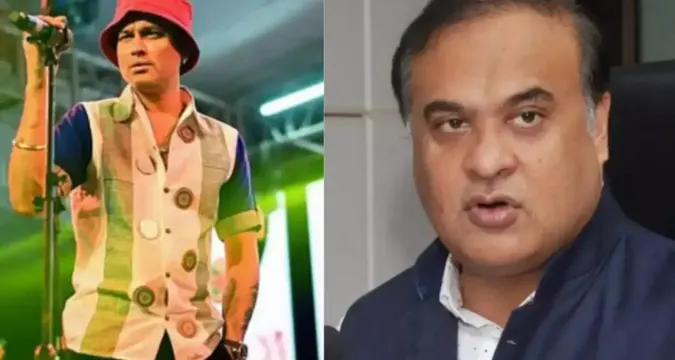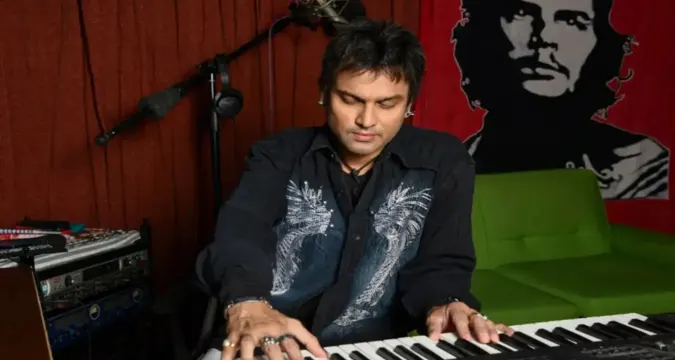Zubeen Garg’s Mortal Remains Taken to GMCH for Second Postmortem
In a theatrical twist that has fallen into Assam and the mortal Indian music industry, the worldly remains of renowned vocalist, Zubeen Garg were transported to Gauhati Medical College and Hospital (GMCH), on Tuesday, to be subjected to a second postmortem. The re-examination decision has given another dimension of seriousness to the circumstances through which the much-loved artist died.

The relocation was against a backdrop of high levels of security where Assam Chief Minister Himanta Biswa Sarma, senior state officials and medical experts were all present at the scene. This has caused a significant controversy on the spot, received emotional responses by fans and prompted new calls to clarify what exactly caused the death of one of the most iconic Northeast Indian voices.
Why a Second Postmortem Was Ordered
The procedure to do a second autopsy is not common. The re-examination is generally suggested by the medical authorities when it might not be clear in the end that the first procedure has been done and some new information, suspicions, and contradictions emerge. With references to Zubeen Garg, they have not made public the reasoning on which the order is based. Nevertheless, it was reported that the state government and the family of the deceased singer desired the utmost transparency.

Chief Minister Himanta Biswa Sarma, who was personally monitoring the process at GMCH, stressed that no one should be left without understanding and every point must be explained. His appearance lends the subjectivity of the topic and the effects of the death of Garg on cultural and emotional life of Assam.
The Atmosphere Outside GMCH
With the announcement of the second postmortem, swarms of fans, their supporters as well as the friends of different cultural organizations met in front of GMCH. Hundreds of them were carrying candles, flowers and posters of Zubeen Garg making the hospital premises a place of mourning. The paramilitary and police forces were used to provide order since emotions were at their peak.
There were fans who were furious and some people wanted the truth to be released as soon as possible and straight away and there were the others who were silent and praying to find out. It was a combination of sorrow, disorientation, as well as the eager expectation of what the medical re-examination might bring.
Who Was Zubeen Garg?
Non-Assamese people might be unaware of the extent of this loss, but Zubeen Garg was so much more than a playback singer. Garg was born in 1972 in Jorhat, Assam and rose to fame in India with his popular singing tune, Ya Ali, a song improved in the film Gangster, in 2006. However in the case of Assam and the Northeast, he was a cultural icon; a singer, composer, actor, director and activist whose works cut across numerous languages such as Assamese, Hindi, Bengali, Nepali, and Marathi.

His music tended to convey Assamese culture and pro-Assamese identity. His open social advocacy was also accompanied by his participation in the environmental, youth and political pursuits of Assam. The sudden death of Zubeen Garg has thus created a vacuum not only in the music world but also in the socio-cultural arena in the state.
Political and Cultural Reactions.
The Assam news of the second postmortem has been spread in other states. Crossover politicians, show business members, and spectators everywhere in the country have been urging people to wait with patience and honor in the re-examination process. A number of performers and musicians within the Indian music industry including playback singers of Bollywood movies and independent musical artistes have posted their condolence messages on the internet highlighting the need to embrace transparency.
Cultural groups in Assam who have frequently been part of Garg in music shows and other social movements have requested the government to publish the release of the findings in public so that speculations do not arise.
What Happens Next?
The second autopsy is supposed to be done by medical experts at GMCH in the most precise way possible. This will be written down and results circulated to the state authority prior to its being shared to other people.

Should the re-examination show the original results, the case could progress to a closure so that the family and the fans can bereave in peace. Nevertheless, when uncovered fresh truths are revealed then this might lead to inquiry into how he died by Garg.
The Larger Context
The case provokes wider concerns regarding the manner in which India responds to those related to high profile cases involving the deaths of individuals who have massive public attention. However, rare, second postmortems can be imperative, such as cases of transparency and mistrust. In the case of Assam, where Zubeen Garg left a deep mark, keeping it straight is not only a legal or medical issue, but rather a memorial to a cultural hero.
Conclusion
With mortal remains of Zubeen Garg subjected to a second postmortem in GMCH, under the scrutiny of the Assam government, people of Assam and the rest of India look forward with heavy hearts to getting answers. This re-exploration may bring the end, or offer some new ones, but the one thing that cannot be neglected is that the music and voice of Garg would keep playing for the next generation after the next.
Time and circumstance cannot remove the legacy, which he had developed based on the melodies that were practiced based on blending the modern rhythms with the Assamese soul. Now, when Assam grieves and the world is watching, it is evident how the truth is required, and Zubeen Garg must be sentenced with the dignity of her remarkable journey.








